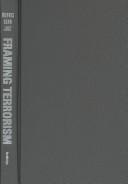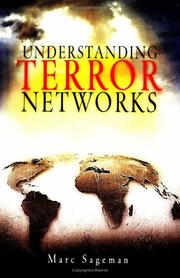| Listing 1 - 4 of 4 |
Sort by
|
Book
ISBN: 221361704X Year: 2004 Publisher: Paris Fayard
Abstract | Keywords | Export | Availability | Bookmark
 Loading...
Loading...Choose an application
- Reference Manager
- EndNote
- RefWorks (Direct export to RefWorks)
Anthropological linguistics --- Ethnology --- Ethnolinguistique --- Anthropologie sociale et culturelle --- Balkan Peninsula --- Balkans --- Politics and government --- Politique et gouvernement --- Political aspects. --- Politics and government. --- EthnologyPolitical aspects.Balkan PeninsulaPolitics and government. --- Political aspects

ISBN: 0415947189 1135938237 1280078871 0203484843 9780203484845 9780415947183 0415947197 9780415947190 9786610078875 6610078874 9781135938239 9781135938185 1135938180 9781135938222 1135938229 9781280078873 0203604571 Year: 2003 Publisher: New York : Routledge,
Abstract | Keywords | Export | Availability | Bookmark
 Loading...
Loading...Choose an application
- Reference Manager
- EndNote
- RefWorks (Direct export to RefWorks)
Framing Terrorism argues that the September 11 attacks precipitated a critical shift in the predominant "news frame" used by the US mass media for understanding issues of national security, thereby altering perceptions of risk at home and abroad.
International relations. Foreign policy --- Polemology --- Journalism --- Press coverage. --- Terrorism. --- Terrorism - Press coverage. --- Terrorism and mass media. --- Terrorism in mass media. --- Social Science. --- Language / Linguistics. --- Journalism & Communications --- Communication & Mass Media --- Terrorism --- Terrorism in the press --- Mass media and terrorism --- Mass media --- Terrorism and mass media --- Terrorism in mass media --- Press coverage

ISBN: 0801443490 0801472792 9780801443497 9780801472794 Year: 2005 Publisher: Ithaca Cornell University Press
Abstract | Keywords | Export | Availability | Bookmark
 Loading...
Loading...Choose an application
- Reference Manager
- EndNote
- RefWorks (Direct export to RefWorks)
Language and culture --- Languages in contact --- Multilingualism --- Russian language --- Sociolinguistics --- Ukrainian language --- Social aspects --- Social aspects. --- Ukraine --- Languages --- Political aspects. --- Ukrainien (Langue) --- Slavic languages, Eastern --- Ruthenian language (Ukrainian) --- CultureSocial aspects. --- Sociological aspectsUkraine --- UkraineLanguages --- Areal linguistics --- Culture and language --- Culture --- Language and languages --- Language and society --- Society and language --- Sociology of language --- Linguistics --- Sociology --- Integrational linguistics (Oxford school) --- Plurilingualism --- Polyglottism --- Sociological aspects --- Ukrainian S.S.R. --- Ucrania --- Ukrainskai︠a︡ Sovetskai︠a︡ Sot︠s︡ialisticheskai︠a︡ Respublika --- Ukrainskaya Sovetskaya Sotsialisticheskaya Respublika --- Ukrainian Soviet Socialist Republic --- Uḳraʼinah --- Malorosii︠a︡ --- Małorosja --- Ukraïna --- Petite-Russie --- Oekraïne --- Ukrainska Radyanska Sotsialistychna Respublika --- Ukrainian Socialist Soviet Republic --- Ukrainska Sotsialistychna Radianska Respublika --- Ukraïnsʹka Radi︠a︡nsʹka Sot︠s︡ialistychna Respublika --- Oukraïne --- Ukrayina --- Ukrayna --- U.S.R.R. --- Ucraina --- Ukraïnsʹka Sot︠s︡ii︠a︡listychna Radi︠a︡nsʹka Respublika --- Ukrainian Council Socialist Republic --- ウクライナ --- Ukuraina --- Україна --- Украинэ --- Ucrægna --- Украина --- أوكرانيا --- Ūkrāniyā --- Ucrayena --- Ukyáña --- Ukranya --- Ukrajina --- Yr Wcráin --- Wcráin --- Ουκρανία --- Oykrania --- Ukrainio --- Ukrainujo --- Ukrayiina --- An Úcráin --- Úcráin --- Yn Ookraan --- Ookraan --- Украинмудин Орн --- Ukrainmudin Orn --- 우크라이나 --- ʻUkelena --- Yukrain --- Украинæ --- Ukrainæ --- IYukreyini --- I-Yukreyini --- אוקראינה --- אוקראינע --- Ukraine (Hetmanate : 1648-1782) --- Langage et culture --- Sociolinguistique --- Langues en contact --- Multilinguisme --- Russe (Langue) --- Aspect social --- Langues --- Aspect politique

ISBN: 0812238087 0812206797 1283897288 9780812238082 Year: 2004 Publisher: Philadelphia : University of Pennsylvania Press,
Abstract | Keywords | Export | Availability | Bookmark
 Loading...
Loading...Choose an application
- Reference Manager
- EndNote
- RefWorks (Direct export to RefWorks)
For decades, a new type of terrorism has been quietly gathering ranks in the world. America's ability to remain oblivious to these new movements ended on September 11, 2001. The Islamist fanatics in the global Salafi jihad (the violent, revivalist social movement of which al Qaeda is a part) target the West, but their operations mercilessly slaughter thousands of people of all races and religions throughout the world. Marc Sageman challenges conventional wisdom about terrorism, observing that the key to mounting an effective defense against future attacks is a thorough understanding of the networks that allow these new terrorists to proliferate. Based on intensive study of biographical data on 172 participants in the jihad, Understanding Terror Networks gives us the first social explanation of the global wave of activity. Sageman traces its roots in Egypt, gestation in Afghanistan during the Soviet-Afghan war, exile in the Sudan, and growth of branches worldwide, including detailed accounts of life within the Hamburg and Montreal cells that planned attacks on the United States. U.S. government strategies to combat the jihad are based on the traditional reasons an individual was thought to turn to terrorism: poverty, trauma, madness, and ignorance. Sageman refutes all these notions, showing that, for the vast majority of the mujahedin, social bonds predated ideological commitment, and it was these social networks that inspired alienated young Muslims to join the jihad. These men, isolated from the rest of society, were transformed into fanatics yearning for martyrdom and eager to kill. The tight bonds of family and friendship, paradoxically enhanced by the tenuous links between the cell groups (making it difficult for authorities to trace connections), contributed to the jihad movement's flexibility and longevity. And although Sageman's systematic analysis highlights the crucial role the networks played in the terrorists' success, he states unequivocally that the level of commitment and choice to embrace violence were entirely their own. Understanding Terror Networks combines Sageman's scrutiny of sources, personal acquaintance with Islamic fundamentalists, deep appreciation of history, and effective application of network theory, modeling, and forensic psychology. Sageman's unique research allows him to go beyond available academic studies, which are light on facts, and journalistic narratives, which are devoid of theory. The result is a profound contribution to our understanding of the perpetrators of 9/11 that has practical implications for the war on terror.
International movements --- Islam --- Polemology --- Terrorists --- Terrorism --- Jihad --- Terroristes --- Terrorisme --- Social networks --- Réseaux sociaux --- JihadSocial networks --- Jihād --- Réseaux sociaux --- Jihad. --- Terrorism. --- Social networks. --- Criminals --- Acts of terrorism --- Attacks, Terrorist --- Global terrorism --- International terrorism --- Political terrorism --- Terror attacks --- Terrorist acts --- Terrorist attacks --- World terrorism --- Direct action --- Insurgency --- Political crimes and offenses --- Subversive activities --- Political violence --- Terror --- Holy war (Islam) --- Islamic holy war --- Jahad --- Jehad --- Muslim holy war --- War (Islamic law) --- Terrorists - Social networks --- African Studies. --- Anthropology. --- Asian Studies. --- Folklore. --- Linguistics. --- Middle Eastern Studies. --- Political Science. --- Psychology. --- Public Policy.
| Listing 1 - 4 of 4 |
Sort by
|

 Search
Search Feedback
Feedback About
About Help
Help News
News